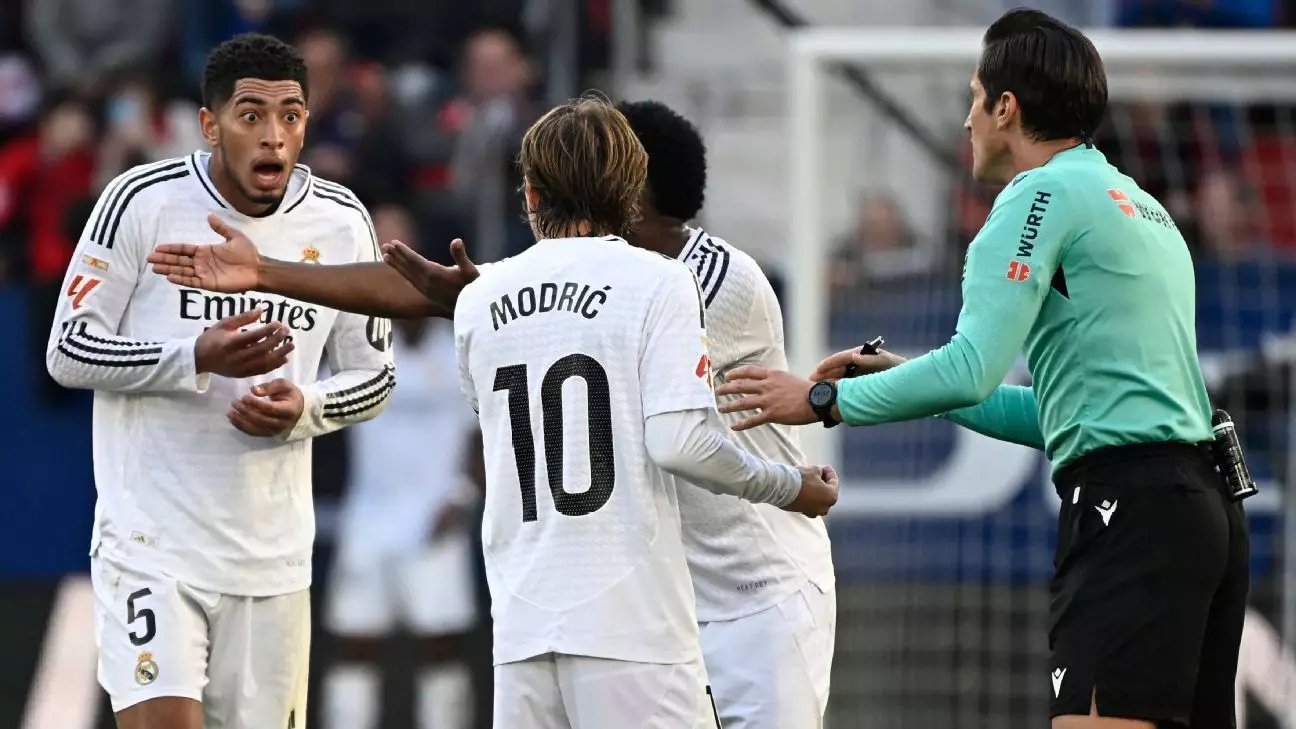In a match filled with tension and unexpected twists, Jude Bellingham’s expulsion during Real Madrid’s encounter against Osasuna on Saturday has ignited a wave of discussion regarding referee decisions and player conduct. The England international’s red card was issued by referee José Luis Munuera in the 40th minute after what Bellingham described as a mere expression of frustration regarding a refereeing decision. This pivotal moment not only impacted the match’s dynamics but also heightened scrutiny of the refereeing standards present in high-stakes football.
After the match, Bellingham communicated his belief that there was a fundamental misunderstanding between himself and Munuera, as he felt the context of his comments was misinterpreted. “It’s clear that he made a mistake, there was a miscommunication,” he stated, emphasizing that the incident should be seen in light of the entire situation. He further explained the nuances of their exchange, illustrating the cultural differences that often slip through the cracks in such high-pressure environments. The player maintained that his intent was never to jeopardize his team’s position, suggesting that as a key member of the squad, he values his commitments and responsibilities.
Real Madrid’s head coach, Carlo Ancelotti, echoed Bellingham’s sentiments, suggesting that the referee’s understanding of the English language might have played a significant role in the unfortunate decision. “I think [the referee] didn’t understand English well,” Ancelotti remarked, defending his midfielder’s character. He noted that a phrase like “f— off” could be easily misconstrued in translation, where the intent might not carry the same weight. With Bellingham asserting his commitment to the team, it raises considerable questions about the training and resources available to match officials, particularly in leagues that see an influx of international players.
While the match concluded in a 1-1 draw, the ramifications of the incident extended beyond the final score. Bellingham’s assertion that video evidence contradicted the referee’s report signifies an evolving narrative in football where technology has the potential to redefine human rulings. Ancelotti’s inclination to engage in dialogue with the referee rather than holding Bellingham accountable for his comments reflects a broader trend in sports—recognizing the importance of communication in maintaining fair play.
The call for better communication and understanding in football’s officiating reflects a critical need for evolution within the game. As football continues to globalize, the experiences of players from diverse backgrounds must be taken into account by officials. The fallout from Bellingham’s red card incident serves not only as a reminder of the tension present in football but raises important questions about ensuring consistent and fair decision-making on the pitch. This case illustrates the necessity for ongoing discussions about player conduct, referee training, and the evolving nature of sport in our increasingly multicultural world.

